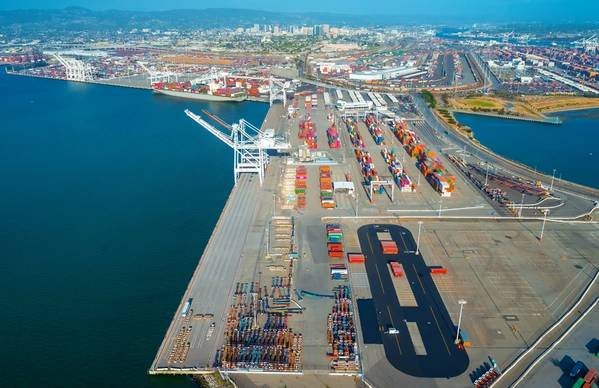
Protect your port with the power and resiliency of propane generators
Our nation’s ports are a critical hub of business, logistics, and employment, and their global impact is undeniable. According to the American Association of Port Authorities (AAPA), seaport activity in 2018 supported the employment of nearly 31 million people in the U.S. alone, an increase of 7.5 million jobs since 2014.
The AAPA also notes that U.S. seaport activities account for approximately 26 percent of the U.S. economy, generating nearly $5.4 trillion in total economic activity and more than $378 billion in federal, state, and local taxes in 2018.
With that in mind, ensuring a port’s infrastructure is resilient in the face of disruptions, whether caused by natural disasters or grid outages, is mission critical for port authorities. Fortunately, propane can provide power generation and peace of mind to ports across the country.
Commercial propane generators are trusted by hospitals, fire and police departments, educational facilities, data centers, and more to provide uninterrupted operation. These systems can be configured to service only the most critical loads or to maintain full operation in the event of power failure. Generators fueled by propane can meet energy demands from 1-4 kW for backup systems to over 10 MW for prime power. Notably, propane can be used port-side to power everything from a small EV charging station to a large capacity micro-grid, providing prime power and uninterrupted service over 10 MW.
Propane-powered generators provide supplemental power for electrical loads when power from the electric grid is disrupted. These units are typically installed as fully automated systems that ramp up quickly to provide power after an electric grid disruption. In fact, commercial propane standby generators supply supplemental electricity in as little as 10 seconds after an outage and their autonomous design requires little to no involvement from crews to activate or maintain.
Propane generators offer clear advantages over other options when considering storage, maintenance, and reliability. Notably, the indefinite shelf life of propane makes it an ideal generator fuel, whereas diesel degrades over time. Additionally, propane can be stored on site, either above- or below-ground, without the risk of contaminating soil, ground water, or marine ecosystems. Diesel, on the other hand, has the potential for contamination from spills and leaks that are retained in the soil.
Propane burns cleaner than other fuels too, helping port authorities reduce emissions on-site and in the surrounding community. For example, data from the U.S. Department of Energy shows 16 percent greater carbon dioxide emissions per unit of energy for diesel compared with propane.
Emissions reduction strategies are a growing priority for port authorities. As they look for ways to positively impact the environmental and economic well-being of their operation, and local communities, many are being convinced that electrification is the answer. The truth is, there’s another clean, cost-effective, and versatile energy solution on the market: propane. Beyond power generation, propane can be a go-to port fuel by powering various on- and off-road vehicles, too. Notably, propane offers the versatility to power forklifts, light- and medium-duty vehicles, port and terminal tractors, shuttles, and small marine vessels.




